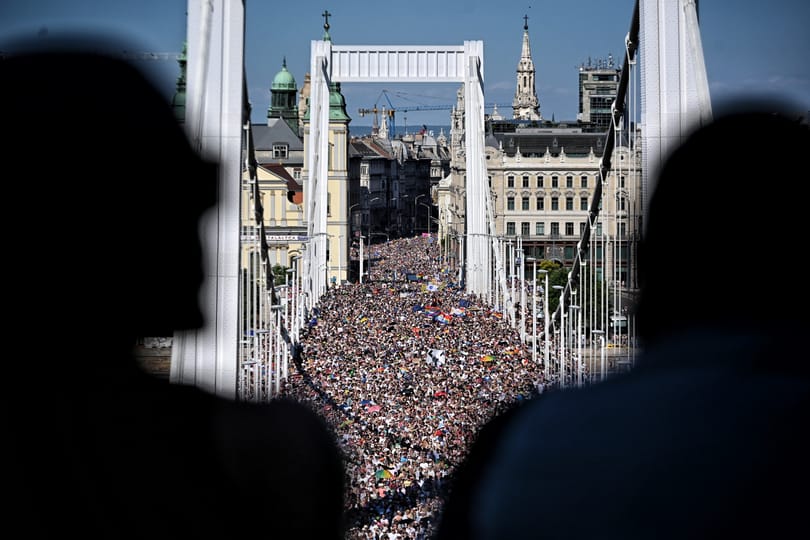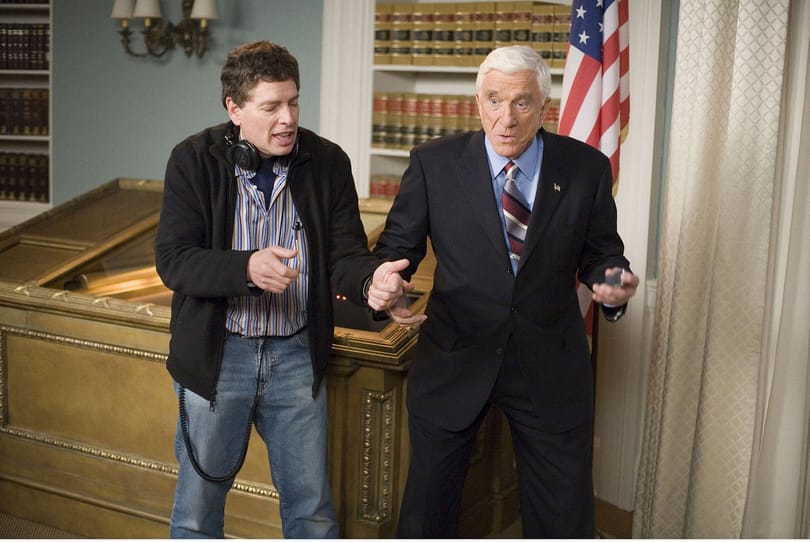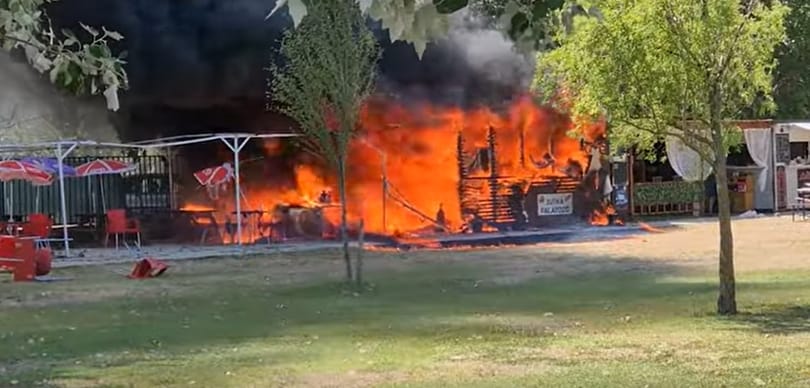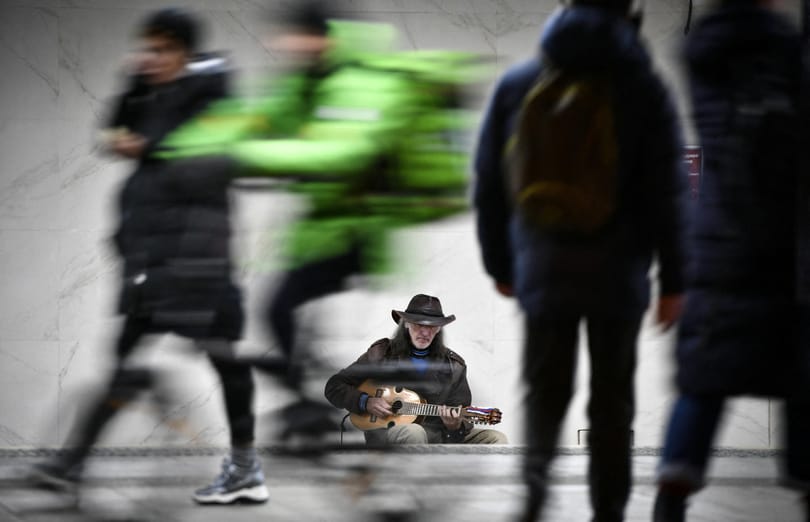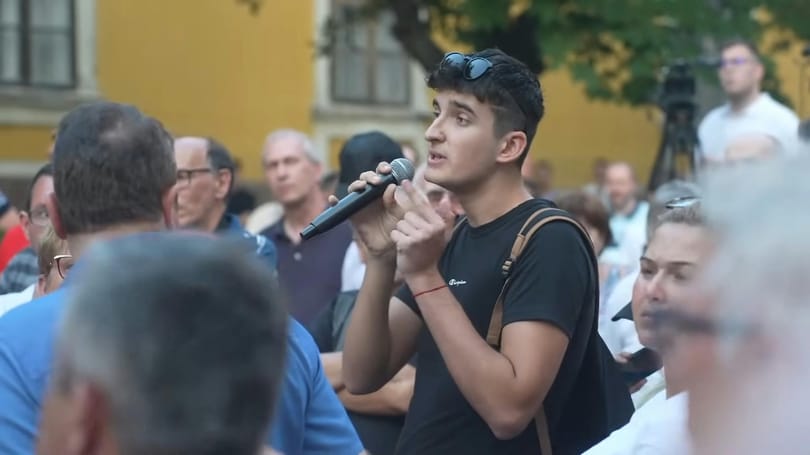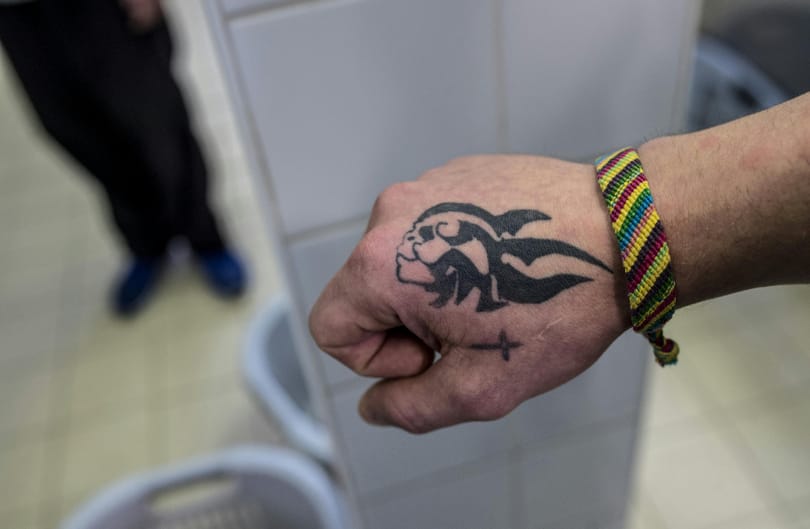Fidesz MPs launched a civil disobedience campaign involving dismantling that wall - only for the police to re-erect it a short while later. Ferenc Gyurcsany, the prime minister, condemned this attack on a 'protected zone', disregarding the fact that the law on policing says nothing about exclusion zones. The government blamed Budapest's chief of police for the square's 100-day closure. Yet everyone knows that Peter Gergenyi, the police chief, who has given know justification for the exclusion zone, is just obeying the government's orders.
The question is whether illegitimate protests are the right response to an illegal measure. Was the wall legal, its dismantling illegal - or the other way round? Most - except perhaps those living nearby, for whom a stroll round the Kossuth statue is an institution - would opt for the latter. You can understand the elderly gentleman who frequently appears on our TV screens as a security expert who panicked at the site of the Arpad flags held aloft by people demonstrating next to the fallen barriers. For him, the trauma of the Holocaust, of which he was reminded by the sight of the Arrow Cross flag, was more repulsive than sealed-off Kossuth ter. It is revealing, in any case, that after railing against fascists, he walked peacefully to the metro station without receiving any abuse.
It's hard to say what will come of this. Fidesz MPs have implied that they could be back to take down the barriers once again - meaning the barriers will now have to be protected both from within and without. Protesters seem to have come up with a new tactic - surrounding double police lines and double barriers with a human chain. Compared to this, the entente's cordon sanitaire in eastern Europe after World War I is as nothing. At some point, experienced wall-builders will have to be bought in from China. Maybe a few former East German consultants could help out...
Fidesz has now set itself up as a human rights champion. Its MPs have offered to waive their parliamentary immunity and defend themselves, as Ghandi did, in full knowledge of their innocence, before court. Much of the media will certainly stick to the fiction that the police only rebuilt the barrier to defend democracy. Thus the conflict that began on 23 October will continue, intensifying rather than cooling off as 15 March approaches. But the radical right-wing media will summon the people to the barricades, as in Delacroix's famous painting.
The important questions is whether the Fidesz MPs who have been accused of political provocation will coordinate their future actions with the protesters gathered on Kossuth ter, amongst whom, I can reveal, there are more than a few lonely eccentrics and wild-eyed obsessives. For example, I arrived on the square with an older man who spent our journey railing against the "Jewish police commanders." Self-appointed spokesmen cannot be kept away from mass demonstrations, and since Budapest has no Hyde Park, it may be that some have chosen to use Kossuth ter for the same purpose.
What will happen here in the evening? Water cannons and police charges to protect the barrier? Most of the police on the scene still wear no identity badges. The few badges that are to be seen have numbers too small to read.
Police commanders are holding discussions, while some politicians play the role of Martin Luther King as others keep their distance, washing their hands of the whole affair. Television stations are preparing for the reality show. They know it's about more than the freedom to stroll and occasionally demonstrate in front of Parliament.
János Pelle


